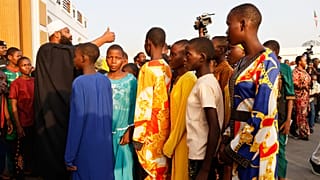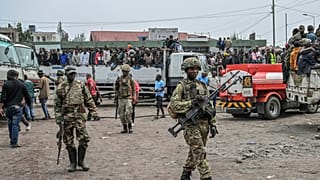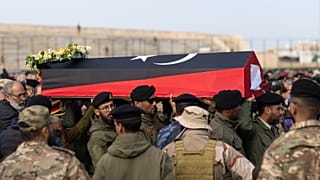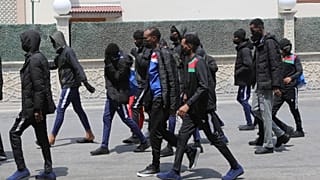Libya
On the edges of Timbuktu is a dying lake. The lake has been fading off for years with sand dunes taking over the lands.
The situation has made life unbearable for residents here some of whom are dying.
Abdul Karim is one of the many residents here who has been hardly hit by this crisis.
He explains "This whole area was filled with water. Then the water receded and the trees started to grow around the lake. The trees started to disappear and people cultivated the land when there were no more trees. During the first rebellion, displaced people settled here and destroyed the forest, and when there was no more forest, the dunes formed."
Humans are not the only ones facing the brunt of this situation. Livestock are also struggling to survive.
Mahamadou Ousmane is a farmer who says "Between breeders and farmers, there is not a day without conflict. Because the space is small, everyone wants to exploit it. This is the reason for the tensions. After harvesting our products, we transport them with a lot of risks. Even the women you see behind me are exposed. Their maize can be intercepted along the way."
Clearly, there are no more rains, with houses and schools gradually being buried in dunes. This has a huge impact on education in the area.
Mayor of Bintagoungou, Hama Abacrene is sad about how the situation is affection all aspects of their livelihood. "It's a school of about 400 students. 400 students means a whole generation. A lost generation, a generation prepared for the exodus or for recruitment. But unfortunately, there is a force stronger than us that has come to destroy the school: // the advancing desert, the erosion, the silting. So, we are in an area where since 2012, our communes only exist with the support of partners."
Now the UN says droughts in the African Sahel are set to deepen and become more frequent, as rainfalls dry up and global warming takes its toll a disaster for all people of the region, almost entirely dependent on farming and animal herding.










00:41
Mali and Burkina Faso restrict entry to US nations in tit-for-tat move
01:09
Sahel Alliance leaders meet in Bamako to deepen break with ECOWAS
00:27
Malian refugees turn to firefighting to give back to their communities in Mauritania
00:24
South Sudan families battle rising Nile floods to survive
00:41
Russian-led Africa corps accused of atrocities in Mali
01:02
First rain of autumn falls in Iran's capital after months of intense drought